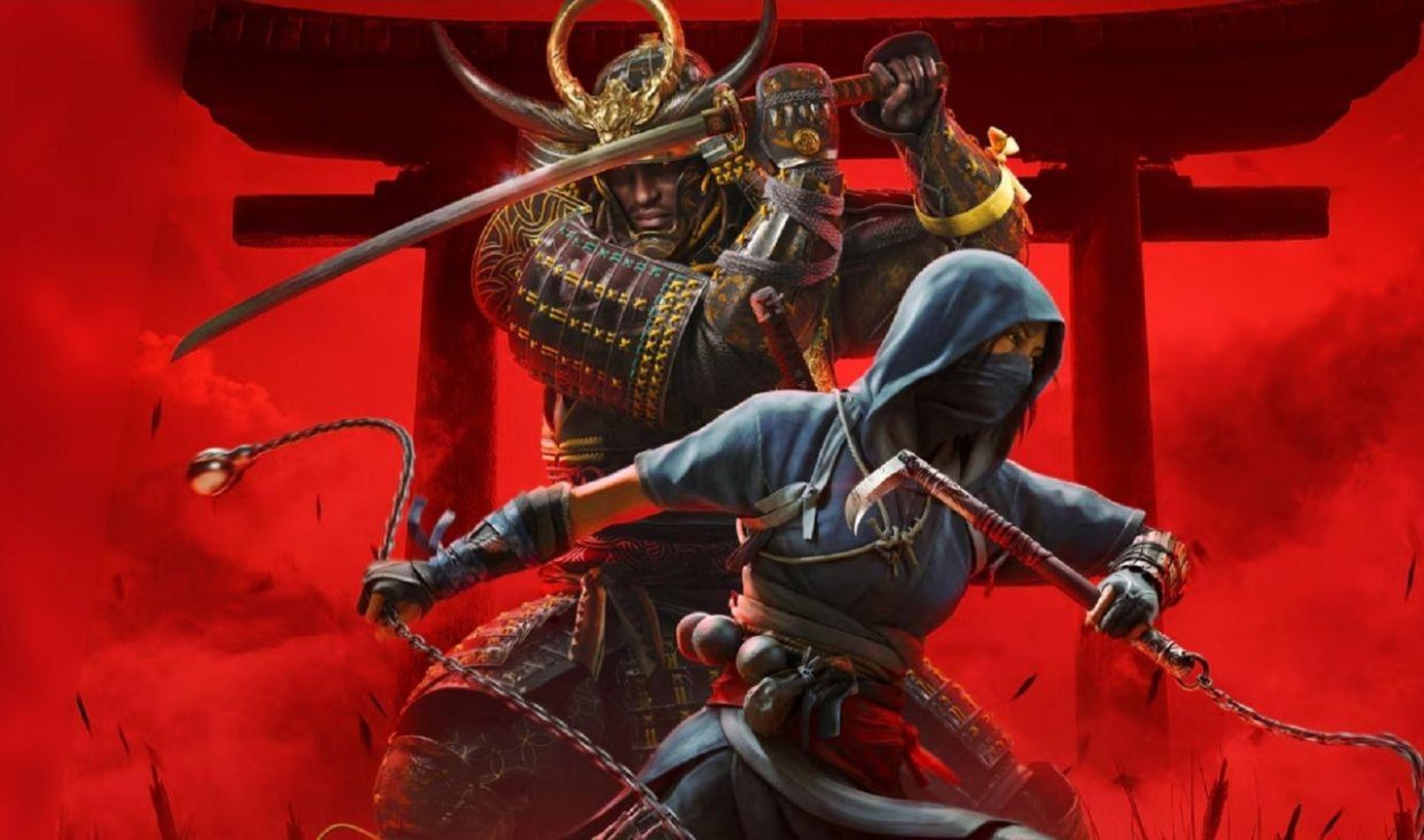
Assassin’s Creed: Shadow – The Samurai Saga Stirring Controversy
A deep dive into Assassin’s Creed: Shadow, Ubisoft’s foray into feudal Japan, exploring its theme of samurai and ninja culture, alongside controversies surrounding its character design and collector’s edition that sparked debates on historical representation.
UPCOMING GAMESGAME INDUSTRY
Tama
1/21/2025
Assassin’s Creed: Shadow: A Samurai Tale Amid Controversy
Assassin’s Creed: Shadow represents a long-awaited chapter in Ubisoft’s flagship series, finally transporting players to the rich and storied world of feudal Japan. With its focus on samurai honor, ninja stealth, and the intricate political dynamics of the Sengoku period, the game had all the makings of a celebrated addition to the franchise.
However, while the announcement thrilled fans, Shadow has not been without controversy. From debates about historical accuracy to heated discussions about representation and the collector’s edition, the game has sparked polarizing opinions even before its release.
The Setting: Feudal Japan and Its Mystique
After years of fan requests, Ubisoft chose feudal Japan as the setting for Assassin’s Creed: Shadow. The story unfolds during the tumultuous Sengoku period (1467–1615), a time of constant war, shifting alliances, and the rise of iconic samurai clans. Players assume the role of a ronin-turned-assassin navigating the complex landscape of feudal politics and the shadowy world of the Templars.
The game combines traditional Assassin’s Creed mechanics, such as stealth and parkour, with new elements tailored to the setting. Swordplay, shuriken, and ninjutsu techniques allow for dynamic combat, while the cultural and architectural depth of feudal Japan provides a visually stunning open world to explore.
The Controversies Surrounding Assassin’s Creed: Shadow
1. A Black Samurai Protagonist Sparks Debate
Ubisoft made the bold choice of featuring a Black samurai as the protagonist, explaining that the character was inspired by Yasuke, a real-life African samurai who served under the legendary warlord Oda Nobunaga. While some praised the inclusion of a diverse lead, others criticized it as historically inaccurate, arguing that Yasuke’s story was unique and not representative of feudal Japan as a whole.
Fans took to social media to voice mixed reactions. Some applauded Ubisoft’s effort to highlight lesser-known historical figures and offer representation, while others accused the studio of pandering and taking liberties with Japan’s history. Ubisoft defended the decision, stating that Shadow has always been a blend of historical fact and fiction, and the protagonist’s story was designed to align with the franchise’s overarching themes of freedom and rebellion.
2. The Collector’s Edition Controversy
The Assassin’s Creed: Shadow collector’s edition faced backlash due to its depiction of a destroyed Torii gate as part of the collectible statue. While Torii gates are significant spiritual symbols in Japanese culture, representing the transition between the mundane and sacred, their destruction in the statue’s design drew parallels to darker historical events.
Critics pointed out that the imagery unintentionally evoked memories of the destruction wrought during World War II, particularly the bombing campaigns that devastated parts of Japan. Others highlighted that the inclusion of a broken Torii gate might be seen as disrespectful to Japanese cultural heritage, as these gates often symbolize resilience and reverence for tradition.
Adding to the controversy, some historians noted that the imagery may unintentionally reference the strained history between Japan and the United States during the war, further fueling debates about cultural sensitivity. Ubisoft’s creative team issued a statement clarifying that the design was intended to symbolize the collapse of oppressive systems and the protagonist’s journey, rather than a direct historical allegory.
Despite the explanation, the controversy sparked discussions about the responsibilities of global companies when representing cultural symbols in entertainment products. Ubisoft announced that they would work closely with cultural consultants to ensure future designs are respectful and well-informed.
3. Representation vs. Cultural Sensitivity
While Assassin’s Creed has often blended historical authenticity with creative storytelling, Shadow brought renewed scrutiny on the balance between representation and cultural sensitivity. Critics questioned whether the game adequately consulted Japanese historians and cultural experts, fearing that its portrayal of samurai and ninja traditions might veer into romanticized or Westernized interpretations.
Ubisoft assured fans that they worked with Japanese consultants throughout the development process, but skepticism remains, particularly among Japanese players who feel the game’s marketing leans too heavily on clichés.
Fan Reactions and Community Discussions
The reaction to Assassin’s Creed: Shadow has been divisive. Many fans are excited to explore the richly detailed world of feudal Japan and appreciate the game’s willingness to tackle themes of diversity and inclusion. However, others feel that the controversies have overshadowed what could have been a universally celebrated installment in the series.
Debates over the protagonist’s background and the collector’s edition have highlighted the challenges of creating a game that appeals to a global audience while respecting cultural histories.
What Does This Mean for Ubisoft and the Franchise?
The controversies surrounding Assassin’s Creed: Shadow underscore the difficulty of balancing historical storytelling with modern sensibilities. As Ubisoft pushes boundaries with more inclusive narratives, the company must navigate the fine line between innovation and respect for cultural authenticity.
For the franchise’s future, Shadow serves as a critical test case. Will its focus on representation and a new cultural setting breathe fresh life into the series, or will it alienate fans who feel it strays too far from the historical roots that defined Assassin’s Creed?
Conclusion
Assassin’s Creed: Shadow has sparked conversations that go beyond gaming, touching on representation, history, and cultural sensitivity. Whether it will be remembered as a bold step forward or a divisive misstep remains to be seen.
Ultimately, Shadow challenges both Ubisoft and its players to reflect on what it means to tell inclusive, respectful stories in a historical context. As its release date approaches, the world waits to see whether the Brotherhood can truly thrive in the land of the rising sun.
PlayEcho delivers the latest news, reviews, and insights from the gaming world, highlighting local talents and global trends for gamers everywhere.
FAQs
Who is the protagonist of Assassin’s Creed: Shadow?
A: The protagonist is a Black samurai inspired by the historical figure Yasuke, a real-life African samurai who served under Oda Nobunaga.Why is the game controversial?
A: The game has faced criticism for its protagonist’s background, debates over historical accuracy, and perceived cultural stereotyping in its collector’s edition.What is the setting of Shadow?
A: The game is set in feudal Japan during the Sengoku period, a time of political intrigue and samurai warfare.How has Ubisoft responded to the backlash?
A: Ubisoft has defended its creative choices, stating they worked with cultural consultants and aimed to blend historical authenticity with the series’ established themes.When will Assassin’s Creed: Shadow be released?
A: The game is slated for release in 2025, with additional details expected in the coming months.
Terms and Conditions
Privacy Policy
PlayEcho
Newest information about game industry and analysis.
Subscribe to our newsletter
© 2025. All rights reserved.








